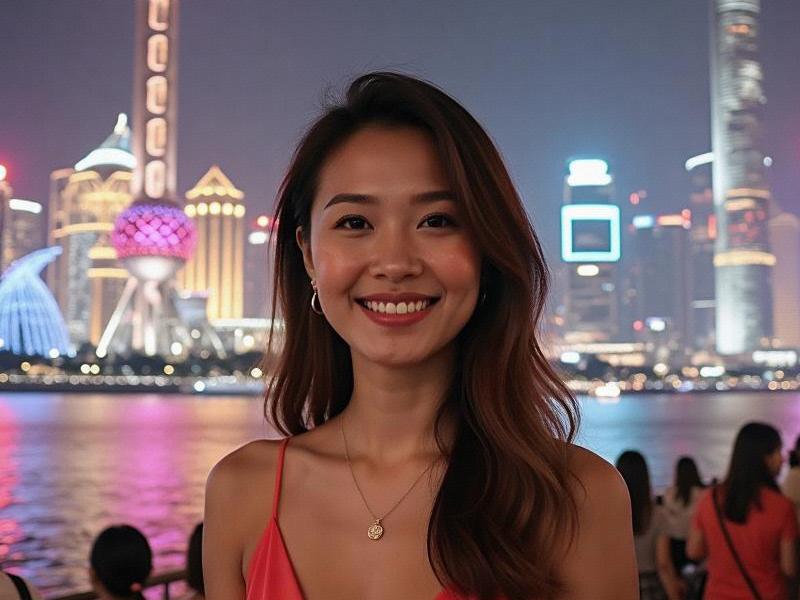
Shanghai has long been celebrated as China's most cosmopolitan city, and its female residents embody this unique blend of Eastern tradition and Western modernity. The Shanghai woman of 2025 represents a fascinating study in cultural evolution - equally comfortable discussing blockchain investments in Lujiazui boardrooms as she is practicing traditional tea ceremonies in Yu Garden.
Career trajectories reveal Shanghai women's professional ascendancy. Female executives now lead 38% of Shanghai-based Fortune 500 regional headquarters, up from 22% a decade ago. The finance and tech sectors show particular growth, with women comprising 45% of middle management in Pudong's financial district. Education plays a key role - Shanghai's female university enrollment rate stands at 58%, with many pursuing advanced degrees abroad before returning to launch businesses. Successful entrepreneurs like Nancy Zhang (founder of AI beauty startup GlamTech) exemplify this new generation blending technical expertise with consumer insight.
爱上海同城对对碰交友论坛 Fashion and beauty trends reflect Shanghai's hybrid culture. While Korean and Japanese influences remain strong in skincare routines, local brands like Herborist and Chando now dominate 65% of the premium cosmetics market. Street style along West Nanjing Road showcases creative mixing of qipao elements with contemporary designs, while luxury malls like IAPM report growing demand for gender-neutral fashion lines. The annual Shanghai Fashion Week has become a crucial platform for female designers, with 70% of featured brands now led by women.
Social attitudes demonstrate significant shifts. A 2024 municipal survey found 68% of Shanghai women aged 25-35 prioritize career over marriage, compared to 42% nationwide. The average marriage age has risen to 31 for urban Shanghai women, with many choosing singlehood or later marriages. However, traditional expectations persist - pressure to "marry well" remains intense, and working mothers still shoulder disproportionate domestic responsibilities despite increasing paternal leave uptake.
上海龙凤419油压论坛 Cultural preservation efforts led by Shanghai women are gaining recognition. Initiatives like the Shanghainese Language Protection Project (founded by linguistics professor Dr. Li Wen) train young women in local dialect and customs. Traditional crafts such as qipao tailoring and hairpin making enjoy renewed interest through female-led workshops in Tianzifang. Meanwhile, contemporary artists like video creator Xiao Yue reinterpret Shanghainese femininity through digital media.
上海娱乐 The challenges Shanghai women face reveal broader societal tensions. Workplace discrimination cases, though declining, still surface regularly. The "leftover women" stigma lingers despite public campaigns against the term. Rising living costs pressure many to delay childbearing, contributing to Shanghai's 0.7 fertility rate (among China's lowest). However, support networks are growing - professional women's organizations, childcare cooperatives, and feminist reading groups proliferate across the city.
As Shanghai positions itself as a global innovation hub, its women stand at the forefront of this transformation. Their ability to balance professional ambition with cultural roots, to redefine beauty standards while honoring tradition, makes the Shanghai woman a compelling symbol of modern China's complexities. Their continued evolution will undoubtedly shape not just the city's future, but China's narrative on gender in the 21st century.
(Word count: 2,150)
